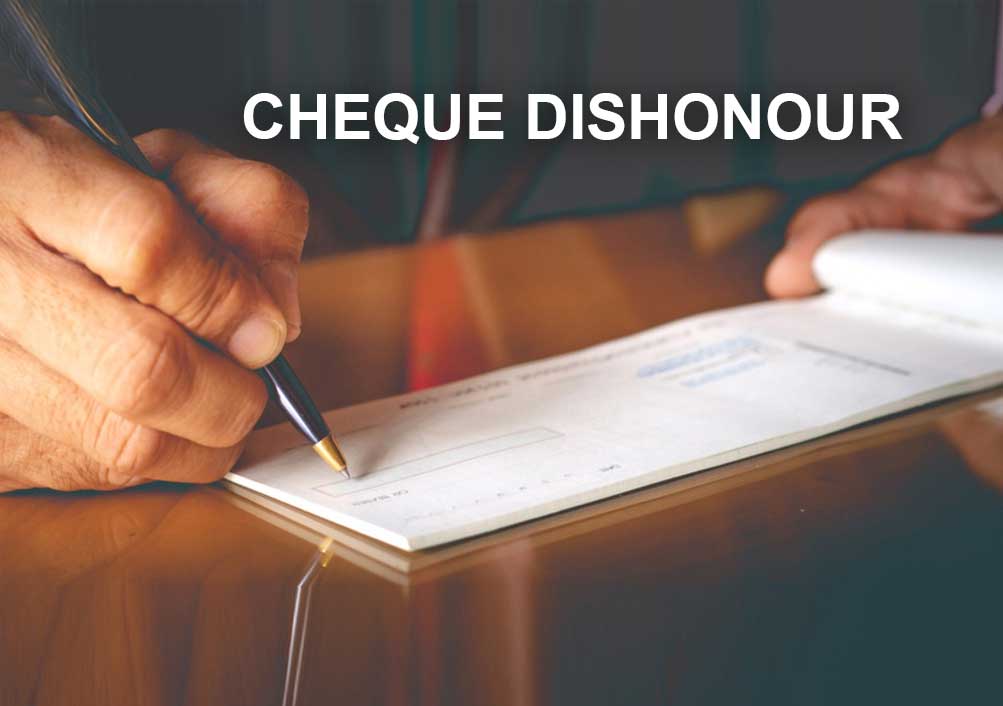In CRR-1347-2022 (O&M)-PUNJ HC-Once signatures on cheques have been admitted, presumption envisaged u/s 118 of Negotiable Instruments Act arises that cheque had been issued for discharge of liability: P&H HC
Justice Jasjit Singh Bedi [20-09-2022]

Read Order: Shakir v. Sanjay Sharma & Another
Monika Rahar
Chandigarh, September 22, 2022: While dealing with revision against the conviction of the petitioner in a cheque bounce case, the High Court of Punjab and Haryana has held that once the signatures on the cheques have been admitted, the presumption envisaged under Section 118 of the Negotiable Instruments Act arises that the cheque had been issued for the discharge of a liability.
“The burden thereafter shifts on the accused to prove his innocence and rebut the presumption under Section 139 of the Negotiable Instruments Act”, asserted Justice Jasjit Singh Bedi.
In his cheque dishonour complaint, the complainant alleged that in 2014, he advanced a friendly loan of Rs. 4 Lacs to the convict/petitioner for a period of four months. In the discharge of his liability, the convict issued cheques in favour of the complainant which got dishonoured due to “ insufficient funds”.
Thereafter legal notice through the registered post was issued to the convict calling upon him to make the payment, however, no such payment was made. Hence, the complaint was filed to summon and prosecute the convict under Section 138 of the Negotiable Instruments Act.
After recording the preliminary evidence, the convict came to be summoned. The statement of the convict under Section 263(g) Cr.P.C. was recorded in which the convict denied his liability in question in favour of the complainant. He stated that he took only Rs.1 lakh from the complainant on interest out of which he had already paid Rs. 90,000/- to the complainant and that he gave blank signed cheques to the complainant as security.
The Trial Court convicted and sentenced the convict/petitioner for offences under Section 143(1) NI Act read with Section 357(1)(3) of Cr.P.C. for six months imprisonment and Rs. 6 Lacs as compensation.
Aggrieved, the convict/petitioner preferred an appeal which upheld the conviction. Hence, the revision petition was filed.
Assailing the decision of the Courts below, the counsel for the convict/petitioner contended that the complainant did not have the requisite funds to advance as a loan to the convict. Also, the Counsel argued that the statement of the complainant recorded during the Trial was materially discrepant and unbelievable. No independent witness of the transaction was examined to substantiate the claim of the complainant that in fact, he had advanced a loan of Rs. 4 Lacs to the convict, the Counsel contended while adding that in fact, the convict took a loan of Rs. 1 Lac from the complainant, out which a sum of Rs. 90,000/- had been repaid.
In fact, the Counsel contended that a security cheque lying with the complainant was misused by him. He thus prayed that the present revision petition be allowed and he be acquitted of the charges framed against him.
On the other hand, the complainant’s counsel contended that two cheques were given in lieu of a friendly loan which was advanced by the complainant to the convict and as such there was an enforceable debt and liability on the part of the convict. It was further argued that the convict had executed an affidavit admitting the receipt of the said amount of Rs. 4 Lacs. Therefore, the plea that the cheques in question had been given as security cheques cannot be accepted, added the Counsel while also arguing that the convict was unable to rebut the presumptions under the provisions of the Negotiable Instruments Act.
After hearing the parties, the Court noted that the convict admitted in his affidavit that he had received a friendly loan of Rs. 4 Lacs and gave two cheques to the complainant. Therefore apparently, there was a subsisting debt and liability which is enforceable in law, the Court held.
Further, the Bench opined that the defence of the convict/petitioner that he had borrowed a sum of Rs. 1 Lac and returned a sum of Rs. 90,000/- was not borne out from anything brought on record by the convict. On the contrary, the Bench observed that he was completely unable to explain why two blank signed cheques were issued as security.
“Therefore, … complainant has duly approved that there was an enforceable liability towards him and in order to discharge the liability, the convict/petitioner firstly issued two cheques on which he has admitted his signatures and thereafter issued an affidavit and a receipt”, the Bench held.
Also, against this factual background, the Court also held that once the signatures on the cheques have been admitted, the presumption envisaged under Section 118 of the Negotiable Instruments Act arises that the cheque had been issued for the discharge of a liability.
“The burden thereafter shifts on the accused to prove his innocence and rebut the presumption under Section 139 of the Negotiable Instruments Act. [In the present case] the convict/petitioner has failed to bring on record any credible evidence to rebut the allegations of respondent No.1-complainant”, Justice Bedi opined.
In view of the above, the Court dismissed the present revision petition.
Sign up for our weekly newsletter to stay up to date on our product, events featured blog, special offer and all of the exciting things that take place here at Legitquest.




Add a Comment